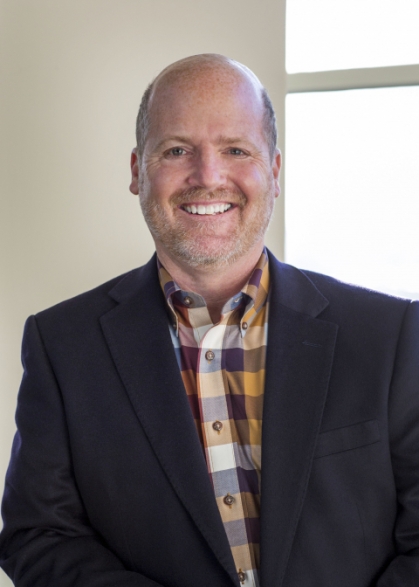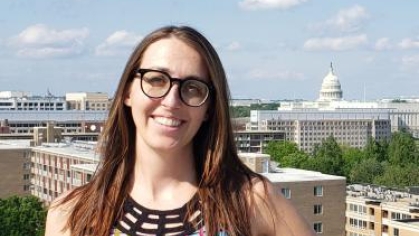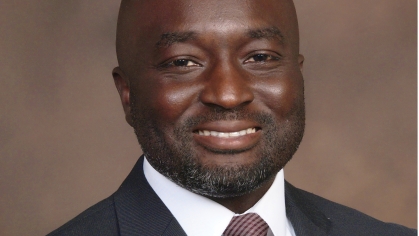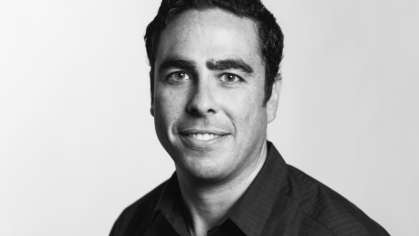Alumni Spotlight: Christopher Sinko BS‘84

“Look at your education as a way to impact the world and target what you do – your major, the courses you take – in thinking about that bigger picture." – Christopher Sinko
After graduating with a BS degree in chemical and biochemical engineering, Christopher Sinko went on to earn his MS and PhD degrees in pharmaceutics from the University of Michigan. He spent 17 years at Pfizer, where he held various leadership roles before joining Bristol-Myers Squibb in 2008. As senior vice president and head of product development, he has been responsible for exploratory and commercial development of the chemistry, manufacturing, and control technologies for all new medicines. The recipient of the school’s 2018 alumni achievement award for Distinguished Achievement in Research, he is currently leading Bristol-Myers Squibb’s integration of R&D in its pending acquisition Celgene. In 2016, he and his wife established the Christopher M. and Angela C. Sinko Endowed Scholarship, which is awarded each year to a student on the basis of financial need and academic merit, with a preference for underrepresented students majoring in chemical and biochemical engineering.
Where did you grow up?
I grew up in North Jersey in Oakland.
What made you decide on Rutgers and engineering?
My original ambition was to go to the US Merchant Marine Academy, but even though I was in, I couldn’t go after a test discovered I’m colorblind. So, I realized I had better apply somewhere else. I applied to Rutgers and was accepted for engineering and pharmacy, but since my brother was in pharmacy, I choose engineering – and was happy I was colorblind.
As it turns out, I am part of a Rutgers family. Both my brothers and their wives and a niece are graduates. My brother Patrick is distinguished professor and Parke-Davis Endowed Chair at Rutgers’ Ernest Mario School of Pharmacy.
What do you value most about your Rutgers education?
You realize over time that what you think you’ll take out of school and what you actually use are different. Two things came out of my education. The first is critical thinking – although I didn’t know at the time what it was. Engineering school is a difficult curriculum but it’s not all about memorizing steam tables or thermodynamics. It’s about problem solving and learning to challenge your biases and thinking to reach solutions. I reach back to this and carry it to my role at Bristol-Myers Squibb today.
Second, studying chemical engineering at Rutgers whetted my appetite for materials science. The extra credits I took in materials metallurgy got me into grad school.
What advice do you have for today’s engineering students?
Look at your education as a way to impact the world and target what you do – your major, the courses you take – in thinking about that bigger picture. Of course you want to go to school and get a job and all that, but when you wrap the bigger picture into your thinking, you’ll wind up able to make an impact earlier in your career.
What kind of an impact do you take pride in?
I’ve helped to put drugs on the market that have benefited people. I’m proud of quite a few of the products I’ve had a hand in, but a couple stand out that I can connect to what I learned at Rutgers. I was able to leverage the fundamental principles of materials science in the creation of combination therapies that have more than one drug in a single tablet – to treat diabetes, hepatitis C, and cancer.
How would you describe your leadership style?
Product development is a team sport and you learn that in engineering you are part of a team.
As a team leader, I’m consultative. I like bigger, diverse teams and I like to frame debates by listening to people. I like to quote the pastor of my church who says that we have “two ears and one mouth for a reason.”
I have a laid-back persona –screwy ideas are okay as long as we get there – but I want people to give me 150 percent. That’s how I work: I listen but am directive about defining and maintaining our vision and so we head in the right direction. I operate under the guise of vision and strategy.
Former Bristol-Myers Squibb intern and current employee Ken Faria ENG’19 described you as “that personable leader who will stay late to talk to an undergraduate intern about life goals and professional pursuits,” when you received your SoE alumni achievement award. What kind of mentoring do you do?
We have systems in place to do mentoring across the line at Bristol-Myers Squibb. I’ve targeted my mentoring towards folks from underrepresented areas – and women in particular – and usually mentor two to four folks at any given time for a year. If they get upset when the year is over, I put them on my “friends and family” program where we meet less frequently, but I’m still available to help them solve their problems.
Why is mentoring so important?
All leaders should mentor. You’re passing on the wisdom of your experience and a broader perspective to help mentees solve their problems. You also get the double benefit of learning something new with every interaction.
Have you worked with School of Engineering students?
My goal for our internship program is to get people into it and encourage them to think about furthering their educations. Because of our direct connection with chemical engineering professors, we are always aware of a pipeline of talent. We generally have up to six Rutgers engineering or pharmacy students in our program.
What inspired you and your wife to establish an endowed scholarship?
We’d started a scholarship at the University of Michigan in 2011 because it was a great way to give back in perpetuity – and decided to do the same thing for Rutgers. The Rutgers scholarship is targeted to educating diverse and underrepresented talents in chemical engineering. In any industry, there’s a need for a pipeline of diverse talent. I wanted to feed this pipeline by helping to educate deserving, talented students – while showing my support for Rutgers.
What is your philosophy of giving?
We need the best and the brightest from all walks of life to solve the future problems facing the world. If you do get a measure of success in your field, pay it back. That’s what I’ve done and will continue to do.
What did you do for fun at Rutgers?
I had a good time at Rutgers. I went to the last Rutgers-Princeton game in September 1980 and was on the field tearing the goal post down. Busch campus pub was a gathering place and I saw King Crimson and the Pretenders at the Barn. I loved hopping on the train to go to New York City.
My core group of friends came out of Rutgers. We would go camping – and in fact we get together and have taken a four-day weekend camping trip every year for 25 years.
What do you do for fun now besides camping?
I love music, and look for live music whenever I can carve out the time. I enjoy being with my family and relaxing and unwinding.
I also like to smoke meats and cook – it’s the formulations scientist in me.
What is the last book you read?
I have ADD and read a couple at a time. I just finished Educated by Tara Westover. Another fantastic book is Beth Macy’s Dopesick. I’m a soccer nut and back when I was a coach and referee in Connecticut, one of the kids on my team died many years later from an opioid overdose. This hit me hard. I learned a lot from Dopesick about drug addiction and all that is wrapped around it. Communities have an important role here in fighting the opioid crisis – when I retire, I want to get involved in fighting the scourge.
If you could go on vacation tomorrow, where would you go?
I’m a beach guy. I’ve never been to the South Pacific and I want to go to Tahiti, Fiji, Bora Bora – all those places. My wife is put off by the long flight times, but when I retire, we’re going to do that.


